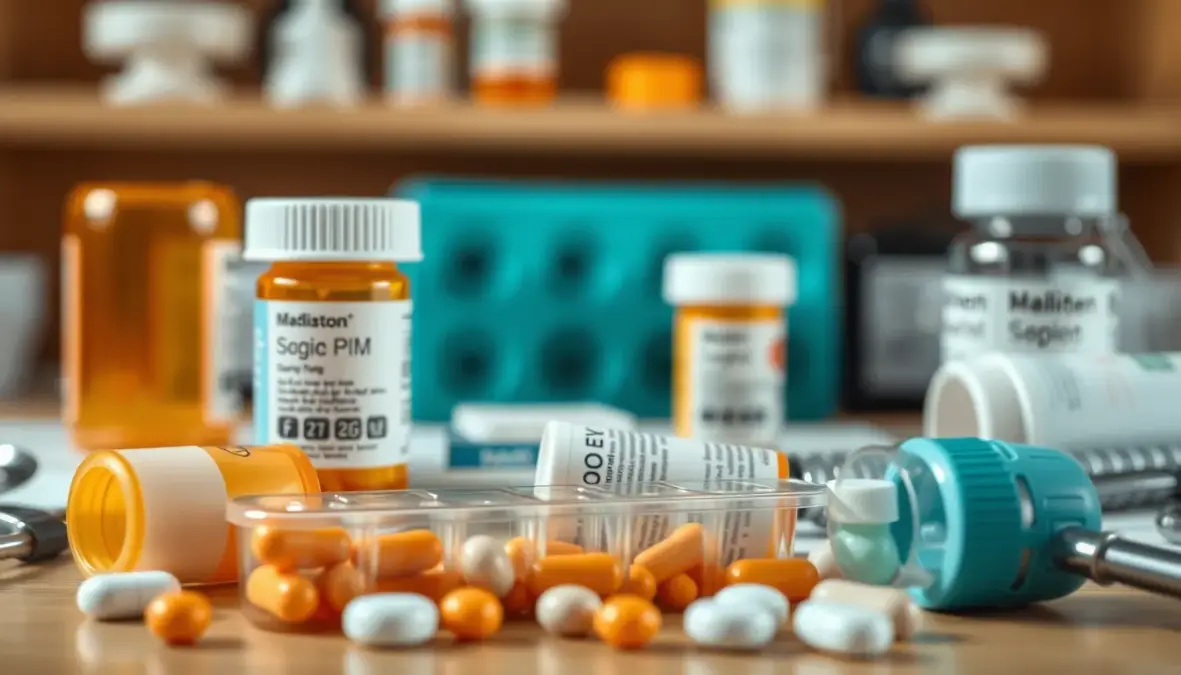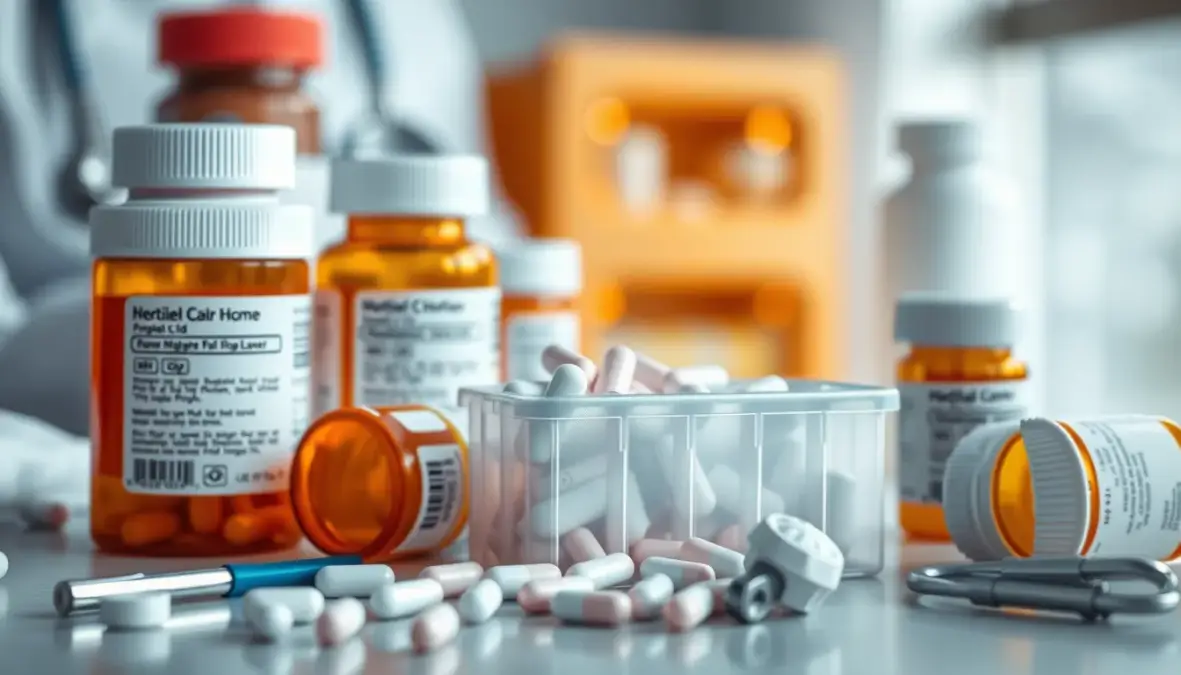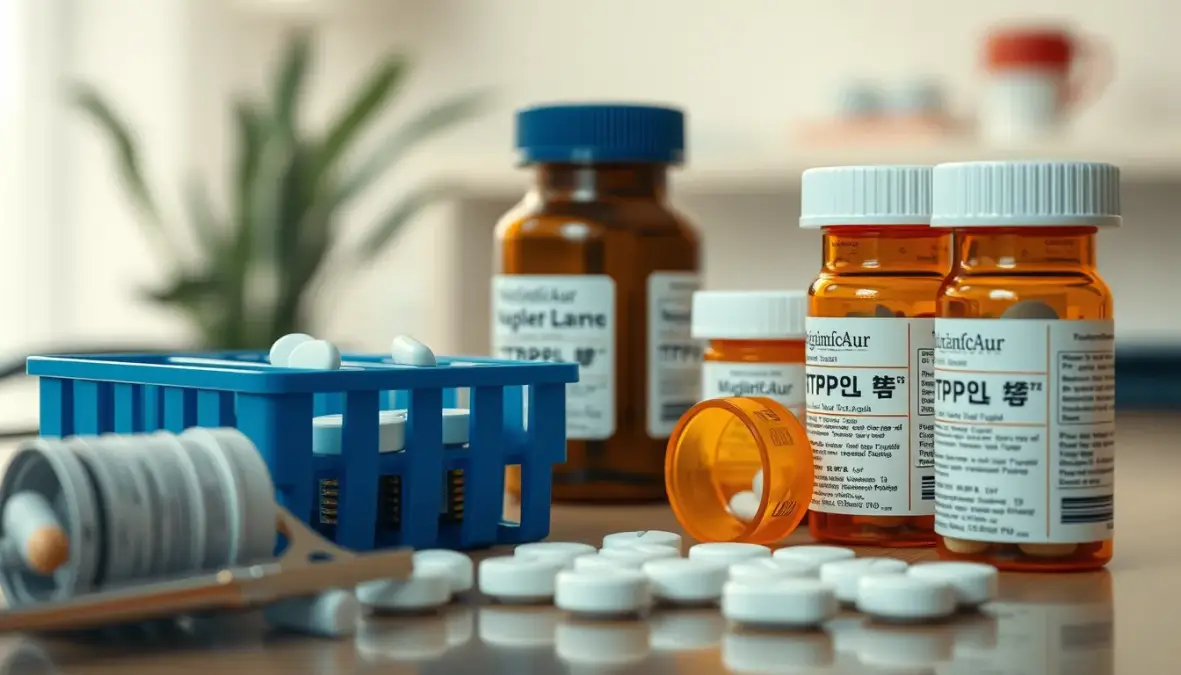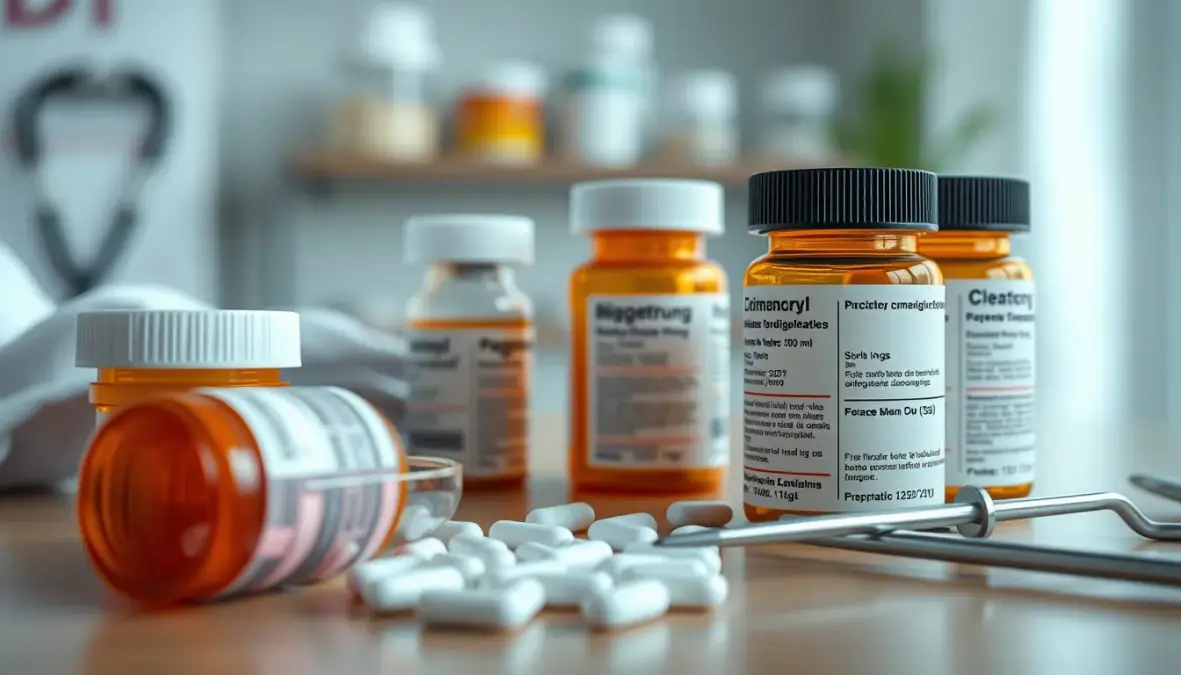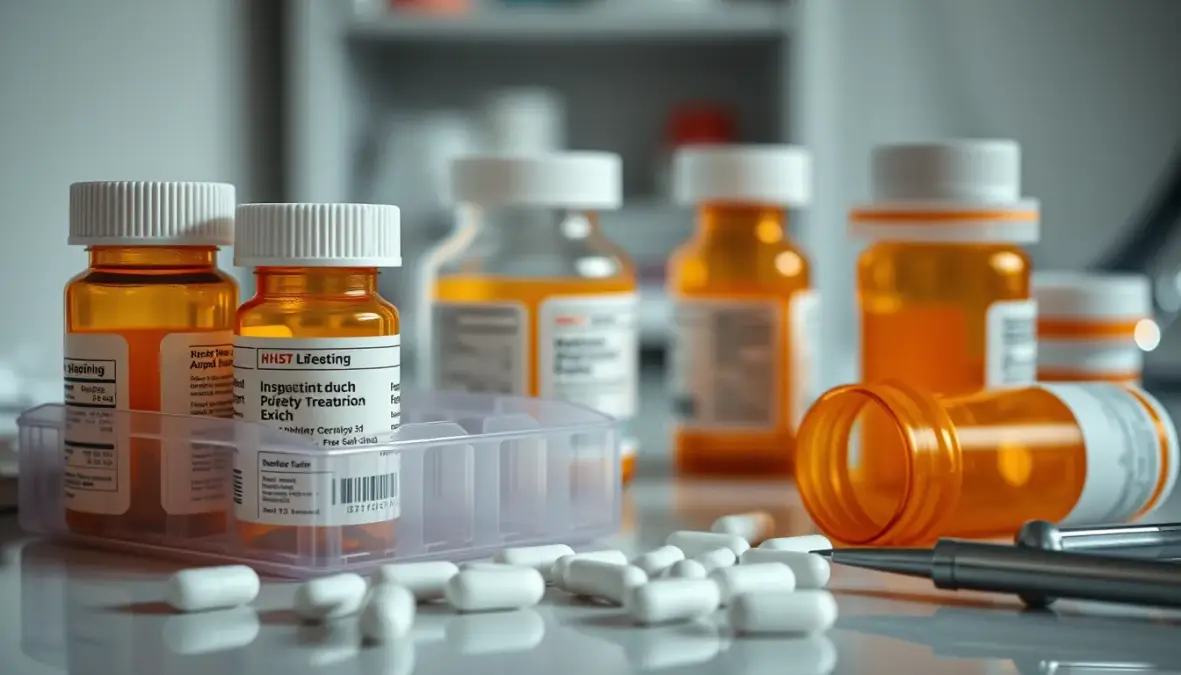The kidneys are vital organs in the body, responsible for filtering waste from the blood, maintaining fluid and electrolyte balance, and producing important hormones. However, many of us are unaware that many medications can affect kidney function, sometimes significantly. At Pharma Care, we believe that awareness of this issue is essential for maintaining kidney health over the long term.
In this article we will examine the relationship between Medications and kidneys, we will look at which medications may affect kidney function, and how you can manage your medication more safely for kidney health.
How do medications affect the kidneys?
The kidneys are the body's main filtration system. Approximately 20-25% of the heart's output reaches the kidneys, where a complex filtration process takes place. Effect of medications on the kidneys Can be expressed through several mechanisms:
- Direct damage to kidney cells
- Changes in blood flow to the kidneys
- Blockage of the renal tubules
- Interstitial inflammation
- Changes in the body's acidity balance
It is important to understand that Kidney function under drug treatment May vary, especially in people with certain risk factors.
Groups of medications that may affect the kidneys
There are several groups of drugs known toEffect of medications on the kidneysIt is important to know them and know when special monitoring is needed:
| Drug group | Examples | Mechanism of injury | Recommendations |
|---|---|---|---|
| Nonsteroidal anti-inflammatory drugs (NSAIDs) | Ibuprofen, diclofenac, naproxen | Reduced blood flow to the kidneys | Limit duration of use, avoid in poor renal function |
| Antibiotics | Aminoglycosides, vancomycin | Direct toxicity to kidney cells | Monitoring drug levels in the blood, adjusting dosage |
| Blood pressure medications | ACE inhibitors, angiotensin receptor blockers | Change in renal hemodynamics | Monitoring kidney function and potassium |
| Radiological contrast agents | Iodine-containing contrast agents | Vasoconstriction and direct toxic effect | Hydration before and after the test |
Risk factors for kidney damage from medications
Not everyone responds to medications in the same way. There are risk factors that increase the risk ofImpaired kidney function under drug treatment:
- Older age (over 65)
- Existing kidney disease
- diabetes
- High blood pressure
- Heart failure
- Dehydration
- Using multiple medications at the same time (polypharmacy)
Signs of kidney damage due to medications
It is important to know the signs that may indicate Effect of medications on the kidneys Negatively:
- Changes in the amount of urine (decrease or increase)
- Swelling in the legs, ankles, or face
- Unexplained fatigue
- Nausea or vomiting
- dyspnea
- Confusion or difficulty concentrating
- Skin rash (in cases of allergic reaction)
Important to know: If you notice these signs while taking medication, contact your doctor immediately. Do not stop taking medication on your own without medical advice.
How to protect your kidneys when taking medication?
There are several important steps you can take to reduce the risk of kidney damage when taking medications:
- Know your medications – Learn about the medications you are taking and their possible effect on the kidneys.
- Drink enough water. – Adequate hydration is essential for proper kidney function.
- Perform periodic inspections – Blood and urine tests can help monitor kidney function.
- Report all medications – Tell your doctor about all the medications you are taking, including dietary supplements and herbs.
- Stick to dosage guidelines – Do not change doses without medical guidance.
Tests to monitor kidney function
When taking medications that may affect the kidneys, it is important to have periodic tests to monitor Kidney function under drug treatment:
- Blood creatinine – Kidney function index
- Blood urea nitrogen (BUN) – Increases when there is impaired kidney function
- Estimated Glomerular Filtration Rate (eGFR) – A calculated index that evaluates kidney function
- Urine test for protein – The presence of protein in the urine may indicate kidney damage.
- Blood electrolytes – Especially sodium and potassium, which may change in kidney damage
Adjusting medication dosage for kidney condition
One of the important principles of safe drug therapy is to adjust the dosage of medications to the condition of the kidneys. Many medications are cleared from the body through the kidneys, and therefore, in the presence of impaired kidney function, they may accumulate to dangerous levels.
The dosage adjustment process is based on:
- Kidney function measurement (eGFR)
- Characteristics of the specific drug
- Patient's age and weight
- Other underlying diseases
Examples of dosage adjustment according to kidney function level:
| Kidney function level (eGFR) | Classification | General recommendations |
|---|---|---|
| >90 ml/min | proper | Usually no dosage adjustment is needed. |
| 60-89 ml/min | Slight decline | Dosage adjustment is usually not necessary, but should be monitored. |
| 30-59 ml/min | Moderate decline | Dosage adjustment for some medications, frequent monitoring |
| 15-29 ml/min | Severe decline | Dose adjustment for most medications, avoidance of some medications |
| <15 ml/min | End-stage renal failure | Significant adjustment of doses, avoidance of multiple medications |
Medications and kidneys – special recommendations for at-risk populations
Elderly
This population is at increased risk of kidney damage from medications due to:
- Physiological decline in kidney function with age
- Taking multiple medications at the same time
- Changes in body structure that affect drug distribution
Diabetics
Diabetics should be especially vigilant aboutEffect of medications on the kidneys Since:
- Diabetes is a major risk factor for chronic kidney disease.
- Some diabetes medications are cleared through the kidneys.
- Combining diabetes medications with other medications may increase the risk of kidney damage.
Patients with hypertension
High blood pressure damages the blood vessels of the kidneys over time. These patients should:
- Balance blood pressure well
- Have your kidney function monitored periodically.
- Be especially careful when combining medications that may affect the kidneys.
Frequently Asked Questions
Do all painkillers harm the kidneys?
Not all painkillers harm the kidneys to the same extent. NSAIDs (such as ibuprofen, diclofenac) are considered to have a higher potential for kidney damage, especially with prolonged use or in high doses. In contrast, paracetamol (acetaminophen) is considered safer for the kidneys at recommended doses. It is important to consult a doctor about the appropriate painkiller for your condition.
Is it possible to restore kidneys damaged by medications?
In many cases, drug-induced kidney damage is reversible if it is recognized early and the offending drug is discontinued. However, prolonged or severe damage may lead to irreversible damage. Therefore, it is important to periodically monitor kidney function when taking drugs with the potential for kidney damage.
What is the recommended frequency of tests to monitor kidney function under drug treatment?
The frequency of testing depends on many factors: the type of medication, the underlying kidney condition, the patient's age, and other risk factors. In general, it is recommended to perform a kidney function test before starting treatment with medications that may affect the kidneys, and then every 3-12 months, as recommended by the treating physician.
Can dietary supplements and herbs harm the kidneys?
Yes, some dietary supplements and herbs may affect kidney function or cause interactions with other medications. For example, creatine supplements, some Chinese herbs, and supplements containing minerals such as magnesium and potassium in high doses may affect the kidneys. It is important to tell your doctor about all supplements you are taking.
Are there foods that can help protect the kidneys when taking medication?
A balanced diet rich in fruits and vegetables, whole grains, and low in sodium may support kidney health. Antioxidant-rich foods such as berries, nuts, and garlic may help reduce oxidative damage. However, it is important to emphasize that diet alone is not sufficient to protect against Effect of medications on the kidneys, and you should follow your doctor's instructions regarding monitoring and dosing medications.
Medical Disclaimer: The information in this article is for general informational purposes only and is not a substitute for professional medical advice, diagnosis, or treatment. You should always consult a qualified physician or other healthcare professional regarding any medical question, condition, or treatment option. Do not disregard professional medical advice or refrain from seeking it because of something you have read in this article. If you are experiencing a medical emergency, seek medical attention immediately.

פרופ’ אלון גרין הוא מומחה לפסיכיאטריה קלינית ומחקר תרופתי, עם התמחות בפיתוח והתאמת תרופות מרשם למגוון מצבים נוירו-פסיכיאטריים. בעל ניסיון של למעלה מ־35 שנה בעבודה קלינית ואקדמית, וכיהן כמרצה ופרופסור אורח במספר אוניברסיטאות מובילות בארץ ובחו”ל. עמד בראש יחידות מחקר וטיפול בבתי חולים ציבוריים ומרכזים רפואיים מתקדמים. תחומי עיסוקו כוללים קשב וריכוז (ADHD), הפרעות חרדה והרגעה, דיכאון קליני והפרעות מצב רוח, וכן טיפולים תרופתיים תומכי דיאטה ואיזון מטבולי. משלב גישות מבוססות ראיות עם חדשנות פרמקולוגית, ופרסם עשרות מאמרים מקצועיים בכתבי עת מדעיים, תוך תרומה משמעותית להבנת מנגנוני פעולה של תרופות והשפעתן הקלינית.

